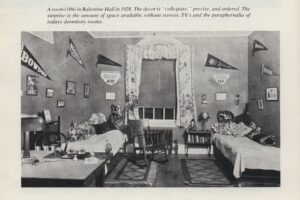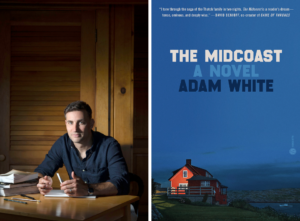3/5 stars
In 2019, Faber & Faber published a compilation of collected lyrics from Shaun Ryder. The book, “Wrote For Luck,” which is 90 pages long, spans Ryder’s 40-year career with strategically-picked lyrics from his well-known songs. Ryder provides his own commentary on the meaning behind each song. Readers get a look at the creative mind of a man who lived through the Madchester music scene and the La Hacienda at its peak popularity.The book also provides insight into his well-meant and genuinely symbolic lyrics. In all honesty, it is a strange choice in terms of format. But after finishing the book, it is clear why Faber & Faber chose to publish Ryder’s lyrics and voice together.
Ryder was the lead singer of the 1980s Manchester band Happy Mondays and is currently the front man of Black Grape. Happy Mondays’ heyday was fueled by the hype that came from La Hacienda. La Hacienda was a nightclub created by television presenter and record producer Tony Wilson. It was the place of drug consumption and the so-called birth of rave culture. Happy Mondays stood in the middle of this success; they were chief executors of mischief and swagger. They didn’t produce the best music but Wilson saw something in Ryder’s lyrics. Wilson believed in Ryder enough to call him this generation’s W.B. Yeats.
Much of Ryder’s lyrics refer to the essence of the party scene as well as the band members’ approach to life. They did not care what they did; they told the media what they truly thought and kept no secrets.
Their first few songs are iffy. You can see the lack of creativity in their early lyrics with rather basic statements that are only used to make a catchy song. “Kuff Dam” was a reference to a pornographic movie and “Tart Tart” was about living in a low-income area, singing about drugs and the people in the artists’ lives. Ryder writes that these two songs were when he could sense the potential the band had.
What is interesting about the book “Wrote for Luck” is its shift in tone. 12 pages in, there is a change in the quality of Ryder’s lyrics. He goes from extreme descriptions of sex to commenting on the changing city and society.
“By the time of ‘24 Hour Party People’ I had really begun to find my voice, and I was writing about our lives and the things that were happening around me and to me, rather than trying to write about what you should write about,” Ryder said.
There is still a sense of immaturity that can be found within his lyrics but rather for shock value or entertainment, there is a sense of meaning that Ryder is trying to express. It shows his growth as an artist.
“Wrote For Luck” is no “I’ll be Your Mirror,” but compared to the nearly 600-page lyric collection of Lou Reed, the short read describes what life was like within the party scene of the 80s. It was worth the read just to learn about how Ryder viewed his juvenile song lyrics and the progress he made to better himself and his art.
“Wrote For Luck” can be found on Amazon and other online bookstores.













